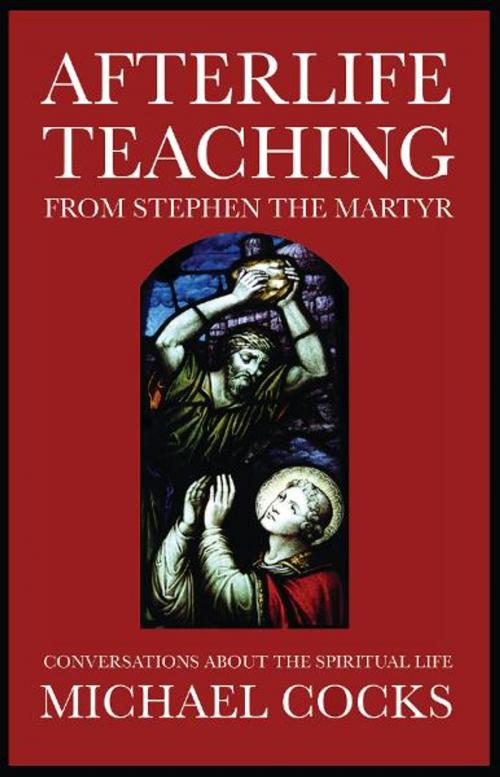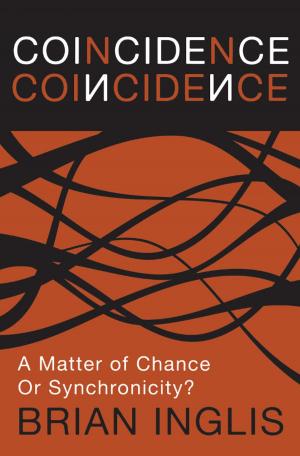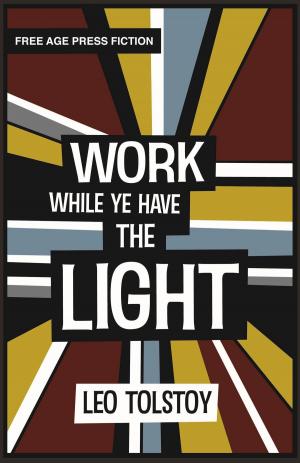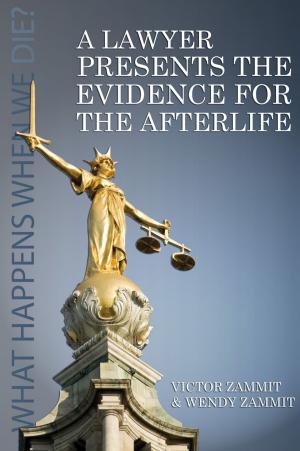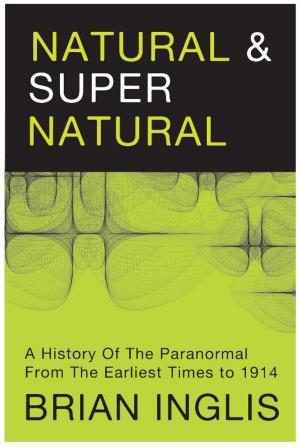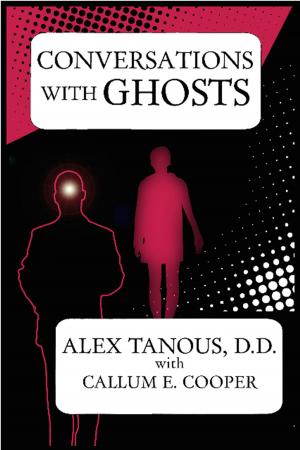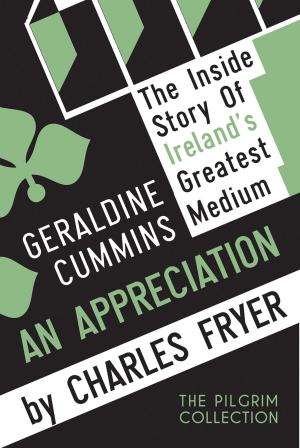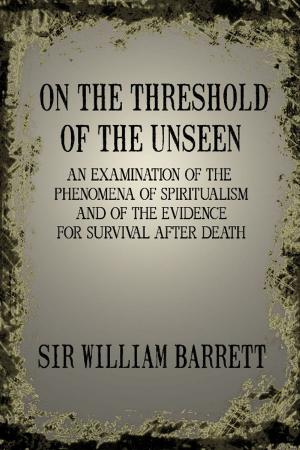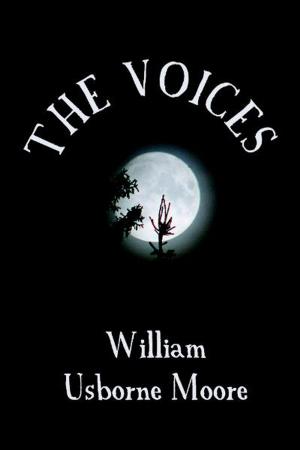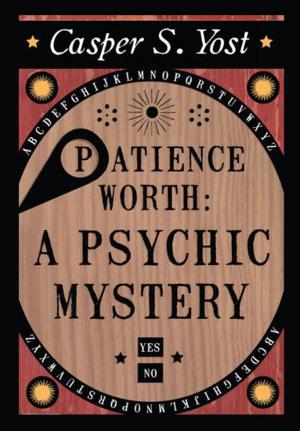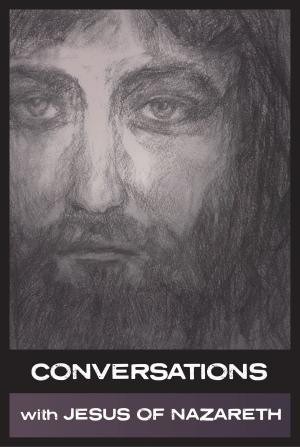Afterlife Teaching from Stephen the Martyr
Nonfiction, Religion & Spirituality, Occult, Spiritualism, New Age| Author: | Michael Cocks | ISBN: | 9781907661938 |
| Publisher: | White Crow Productions Ltd | Publication: | January 25, 2012 |
| Imprint: | White Crow books | Language: | English |
| Author: | Michael Cocks |
| ISBN: | 9781907661938 |
| Publisher: | White Crow Productions Ltd |
| Publication: | January 25, 2012 |
| Imprint: | White Crow books |
| Language: | English |
Early in 1974, a small group of religious friends began gathering periodically at the modest home of Thomas and Olive Ashman in Christchurch, New Zealand. We would reverently pray for protection, and be silent, says the Rev. Michael Cocks, an Anglican priest from Christchurch. Tom would sit upright in a chair, relaxed. After two or three minutes he would begin to pale and to breathe deeply. Then his body would give a slight jerk as Stephen seemed to take over.In effect, Tom Ashman was a trance medium and was entering an altered state of consciousness as his body was being taken over by the entity called Stephen, who would then speak to the group using Ashmans vocal cords. Stephen would dialogue with the group, which, in addition to Cocks and Ashmans wife, Olive, also included a Liberal Catholic priest, a Buddhist, and other curious observers. But this was not just any Stephen; it was Saint Stephen, the first Christian Martyr.Cocks states that normally Stephen spoke through Ashman in a rather curious English, but that he twice spoke in an ancient Greek dialect, which apparently was for the purposes of confirming his identity.For myself, I do not speak [English] and I never have, Stephen related in one of the sittings. I activate these words that are in Thomass memory and are known to him. Occasionally there is a little magic, when I join together sounds and symbols that are in Thomass mind so that words may be spoken that are not known to Thomas.Cocks realizes that the story is difficult for most people to accept. At first, he had a hard time accepting it himself. Even after he came to believe that St Stephen was actually communicating with the small group, he was reluctant to discuss it with many people outside of the group. Part of it was fear of social ostracism for claiming to receive teaching from a saint, he explains. After one of the early sittings in which Stephen spoke in Greek, Cocks consulted a lecturer in Greek at a University about Stephens Greek words. She reported my request to the then bishop, who called me for a chat, Cocks recalls. To him, I denied being interested in spiritualism, as was definitely the case in those days.Cocks, who earned a Masters Degree in philosophy at the University of New Zealand and a Masters in theology at Oxford University, is certain that the Ashmans were not attempting to pull off some kind of parlor trick. Tom was deeply sincere, as was his wife, and he was plainly undergoing personal change as the result of what was being spoken through him, Cocks states. There was no desire to impress, no question of financial gain, and the communications were made in the presence of a group of about twelve friends.Moreover, Cocks points out, Tom Ashmans personal views were somewhat at odds with the teachings coming through him. He gradually became more and more frustrated because most of the time Stephen spoke through him, he was unconscious, and had to wait a week for transcripts of the session to be printed out, Cocks continues. He often felt out of it.Cocks remained skeptical during those early sittings. He wondered if Tom had some kind of secondary or fragmented personality that was taking over his dominant personality, as has been reported in multiple personality cases. No doubt this would be the explanation provided by mainstream psychiatry, which is always looking for a reductionistic answer to such a phenomenon. But multiple personality disorder would not explain how or where that secondary personality obtained the knowledge and wisdom flowing from the entity calling himself Stephen. If the wisdom were flowing from Ashmans subconscious, how did it get into his subconscious in the first place?Ashman had a Catholic mother and Jewish father, and had always thought of himself as a Jew, although he had no strong belief system. Nothing in his history had exposed him to such profound teachings. What was most convincing to Cocks was the verification that the Greek spoken by Stephen in those early sittings was a version of Attic Greek of 2,000 years ago as spoken in Thrace where St Stephens parents had lived. Stephen himself was born near Ancyra, in Galatia. While familiar with Greek from his university days, Cocks did not know enough to rely on that alone. He consulted experts in the field and did extensive research into Stephens Koiné Greek, all of which he discusses in the appendix of this book.Stephen was not the only communicator. On October 23, 1973, these words, apparently coming from Christ, flowed from Ashmans vocal cords: The task of your servant Stephen is that of messenger and he speaks with great authority. The task of yourselves is the decision as to which way you choose use those messages…Christ spoke through Ashman on several other occasions. We believed it to be the voice of Christ, partly because Stephen agreed that it was, and partly from an awe-inspiring presence that had a very strong emotional and spiritual impact, Cocks says. The messages were of course very appropriate if they were from Christ.In one of the early messages recorded, Christ said: The way to your God is through two things alone, and these things are your witnesses. Love and sacrifice. For these are the lances of the Lord. For love to pierce your heart, and the sacrifice to come into your heart are what is needed; for you must sacrifice the lesser for the greater. At all times your ears, your mind and your eyes are assaulted with half-truths and blasphemies.Still, Stephen was by far the most frequent communicator. He stated that his death by stoning is reported quite accurately in the Bible, but stressed that he was not communicating to tell about his life but rather to help them understand their own lives. He explained that he was no longer the Stephen of the Bible, that he had given up his separateness to be one with the Whole, but that to be of service to the Father and make those with whom he was communicating more comfortable he had to put on again the clothes of Stephen. When Cocks asked Stephen if he felt like Stephen or The Whole, or even a figment of Cockss imagination, Stephen replied: For I speak that I am Stephen, I must first create Stephen, and be he. For I cannot be nothing. For once I decided I was nothingness, then I have learned nothing of nothing.In one philosophical discussion during 1973, Stephen offered an analogy in explaining why humans do not fully comprehend the physical life. He likened God to a surgeon. …think how a surgeon would act if, when he had to operate, he had to keep the patient conscious, adjust mirrors so the patient could see the operation that would be beyond his understanding in any case. Should he perhaps have each patient undertake advanced studies before an operation? Or would it perhaps not be better only to operate on a surgeon? Stephen went on to say that the complexity is such that the patient must trust his surgeon.Some of what Stephen had to say:Purpose of life: Remember, that in the beginning there was the coming away from the Source, for the correction of many disorders…Acquiring a physical body is only one stage in the corrections…It seems a contradiction in itself, unless you understand, that it is for this reason each and every one of you is in the position that you are, for the reason that you may develop; that disorder may be corrected. Each is in the situation where he must learn, develop and correct disorder.On Jesus, as Savior: The saving is the saving of the slavery to your own minds, the release of bondage to imagined ills and wrongs, desires that are not within you, but are created by the environment, and by the desires or imagined desires…We often get an image that in some way the death of the body of Jesus in itself cleanses us, yet we fail to see how he showed that the body itself was meaningless.On the afterlife: Think not that when you are without your body, you are going to be much different, for your needs are different. Except through feelings there is little association, for your tasks and your needs are no longer what they were, and the tasks and needs of them that are still in the body are different. These are the first things you learn.On scientific proof of the afterlife: The facts are there, if one would wish to see. The fact that he thinks, the fact that he has emotions, the fact that time is an exact science, are all there to be investigated. That is, if the investigation would be willingly undertaken. Look then at these results, that cannot be explained by using only limited facts or measurements: you might measure water with a jug or a similar small vessel, you cannot measure the ocean with the same vessel. If we confine what we wish to know to what we already know, we will have great difficulty. Be sure then, that the limitation that is being used, is not the limitation of want.On reincarnation: The answer is most difficult. The understanding of the phenomenon is sometimes beyond even myself, but hear me now. Even as I speak through this body, I am Stephen and reincarnate possibly a thousandfold. The confusion is not in the reality of this. It is on the concept of your conscious mind where it can but think of one body.Michael Cocks and more about 'Stephen' can be found on http://www.thegroundoffaith.net/stephen/
Early in 1974, a small group of religious friends began gathering periodically at the modest home of Thomas and Olive Ashman in Christchurch, New Zealand. We would reverently pray for protection, and be silent, says the Rev. Michael Cocks, an Anglican priest from Christchurch. Tom would sit upright in a chair, relaxed. After two or three minutes he would begin to pale and to breathe deeply. Then his body would give a slight jerk as Stephen seemed to take over.In effect, Tom Ashman was a trance medium and was entering an altered state of consciousness as his body was being taken over by the entity called Stephen, who would then speak to the group using Ashmans vocal cords. Stephen would dialogue with the group, which, in addition to Cocks and Ashmans wife, Olive, also included a Liberal Catholic priest, a Buddhist, and other curious observers. But this was not just any Stephen; it was Saint Stephen, the first Christian Martyr.Cocks states that normally Stephen spoke through Ashman in a rather curious English, but that he twice spoke in an ancient Greek dialect, which apparently was for the purposes of confirming his identity.For myself, I do not speak [English] and I never have, Stephen related in one of the sittings. I activate these words that are in Thomass memory and are known to him. Occasionally there is a little magic, when I join together sounds and symbols that are in Thomass mind so that words may be spoken that are not known to Thomas.Cocks realizes that the story is difficult for most people to accept. At first, he had a hard time accepting it himself. Even after he came to believe that St Stephen was actually communicating with the small group, he was reluctant to discuss it with many people outside of the group. Part of it was fear of social ostracism for claiming to receive teaching from a saint, he explains. After one of the early sittings in which Stephen spoke in Greek, Cocks consulted a lecturer in Greek at a University about Stephens Greek words. She reported my request to the then bishop, who called me for a chat, Cocks recalls. To him, I denied being interested in spiritualism, as was definitely the case in those days.Cocks, who earned a Masters Degree in philosophy at the University of New Zealand and a Masters in theology at Oxford University, is certain that the Ashmans were not attempting to pull off some kind of parlor trick. Tom was deeply sincere, as was his wife, and he was plainly undergoing personal change as the result of what was being spoken through him, Cocks states. There was no desire to impress, no question of financial gain, and the communications were made in the presence of a group of about twelve friends.Moreover, Cocks points out, Tom Ashmans personal views were somewhat at odds with the teachings coming through him. He gradually became more and more frustrated because most of the time Stephen spoke through him, he was unconscious, and had to wait a week for transcripts of the session to be printed out, Cocks continues. He often felt out of it.Cocks remained skeptical during those early sittings. He wondered if Tom had some kind of secondary or fragmented personality that was taking over his dominant personality, as has been reported in multiple personality cases. No doubt this would be the explanation provided by mainstream psychiatry, which is always looking for a reductionistic answer to such a phenomenon. But multiple personality disorder would not explain how or where that secondary personality obtained the knowledge and wisdom flowing from the entity calling himself Stephen. If the wisdom were flowing from Ashmans subconscious, how did it get into his subconscious in the first place?Ashman had a Catholic mother and Jewish father, and had always thought of himself as a Jew, although he had no strong belief system. Nothing in his history had exposed him to such profound teachings. What was most convincing to Cocks was the verification that the Greek spoken by Stephen in those early sittings was a version of Attic Greek of 2,000 years ago as spoken in Thrace where St Stephens parents had lived. Stephen himself was born near Ancyra, in Galatia. While familiar with Greek from his university days, Cocks did not know enough to rely on that alone. He consulted experts in the field and did extensive research into Stephens Koiné Greek, all of which he discusses in the appendix of this book.Stephen was not the only communicator. On October 23, 1973, these words, apparently coming from Christ, flowed from Ashmans vocal cords: The task of your servant Stephen is that of messenger and he speaks with great authority. The task of yourselves is the decision as to which way you choose use those messages…Christ spoke through Ashman on several other occasions. We believed it to be the voice of Christ, partly because Stephen agreed that it was, and partly from an awe-inspiring presence that had a very strong emotional and spiritual impact, Cocks says. The messages were of course very appropriate if they were from Christ.In one of the early messages recorded, Christ said: The way to your God is through two things alone, and these things are your witnesses. Love and sacrifice. For these are the lances of the Lord. For love to pierce your heart, and the sacrifice to come into your heart are what is needed; for you must sacrifice the lesser for the greater. At all times your ears, your mind and your eyes are assaulted with half-truths and blasphemies.Still, Stephen was by far the most frequent communicator. He stated that his death by stoning is reported quite accurately in the Bible, but stressed that he was not communicating to tell about his life but rather to help them understand their own lives. He explained that he was no longer the Stephen of the Bible, that he had given up his separateness to be one with the Whole, but that to be of service to the Father and make those with whom he was communicating more comfortable he had to put on again the clothes of Stephen. When Cocks asked Stephen if he felt like Stephen or The Whole, or even a figment of Cockss imagination, Stephen replied: For I speak that I am Stephen, I must first create Stephen, and be he. For I cannot be nothing. For once I decided I was nothingness, then I have learned nothing of nothing.In one philosophical discussion during 1973, Stephen offered an analogy in explaining why humans do not fully comprehend the physical life. He likened God to a surgeon. …think how a surgeon would act if, when he had to operate, he had to keep the patient conscious, adjust mirrors so the patient could see the operation that would be beyond his understanding in any case. Should he perhaps have each patient undertake advanced studies before an operation? Or would it perhaps not be better only to operate on a surgeon? Stephen went on to say that the complexity is such that the patient must trust his surgeon.Some of what Stephen had to say:Purpose of life: Remember, that in the beginning there was the coming away from the Source, for the correction of many disorders…Acquiring a physical body is only one stage in the corrections…It seems a contradiction in itself, unless you understand, that it is for this reason each and every one of you is in the position that you are, for the reason that you may develop; that disorder may be corrected. Each is in the situation where he must learn, develop and correct disorder.On Jesus, as Savior: The saving is the saving of the slavery to your own minds, the release of bondage to imagined ills and wrongs, desires that are not within you, but are created by the environment, and by the desires or imagined desires…We often get an image that in some way the death of the body of Jesus in itself cleanses us, yet we fail to see how he showed that the body itself was meaningless.On the afterlife: Think not that when you are without your body, you are going to be much different, for your needs are different. Except through feelings there is little association, for your tasks and your needs are no longer what they were, and the tasks and needs of them that are still in the body are different. These are the first things you learn.On scientific proof of the afterlife: The facts are there, if one would wish to see. The fact that he thinks, the fact that he has emotions, the fact that time is an exact science, are all there to be investigated. That is, if the investigation would be willingly undertaken. Look then at these results, that cannot be explained by using only limited facts or measurements: you might measure water with a jug or a similar small vessel, you cannot measure the ocean with the same vessel. If we confine what we wish to know to what we already know, we will have great difficulty. Be sure then, that the limitation that is being used, is not the limitation of want.On reincarnation: The answer is most difficult. The understanding of the phenomenon is sometimes beyond even myself, but hear me now. Even as I speak through this body, I am Stephen and reincarnate possibly a thousandfold. The confusion is not in the reality of this. It is on the concept of your conscious mind where it can but think of one body.Michael Cocks and more about 'Stephen' can be found on http://www.thegroundoffaith.net/stephen/
